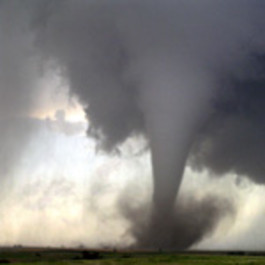 Paging through my newspaper this week I spotted a familiar face—the late Johnny Carson, “The King of Late Night,” as the new Peter Jones PBS documentary coronates him. I read on: “He had everybody in stiches for 30 years, but offstage Johnny Carson was not the life of the party” (South Bend Tribune May 14, 2012 p B7).
Paging through my newspaper this week I spotted a familiar face—the late Johnny Carson, “The King of Late Night,” as the new Peter Jones PBS documentary coronates him. I read on: “He had everybody in stiches for 30 years, but offstage Johnny Carson was not the life of the party” (South Bend Tribune May 14, 2012 p B7).
I kept reading: “Carson was shy and often anti-social. . . .[His] reserve probably stemmed from his unyielding mother, Jones surmises. ‘I think it all traces back to his relationship with his mother, Ruth Carson, who for his entire life, he tried to get her approval and her love. And she withheld it, no matter what.’” I kept reading: “‘When he premiered on Oct. 1, 1962, hosting “The Tonight Show,” an interviewer asked Mrs. Carson what she thought. She said, “Well, I really liked Jack Paar [Carson’s popular late night predecessor]. Johnny’s not as controversial.”’” Peter Jones then recalls another interview: “‘And then there was a cover story in Time magazine in 1965 that began with the reporter sitting with Mr. and Mrs. Carson watching a monologue [of their son]. It finishes. She gets up and says, “That wasn’t funny” and walked into the kitchen”’” (ibid).
I put the newspaper down and mused to myself. How quick I am, how quick we are to render snap judgments about others, famous or unknown. After all, it seems fairly obvious to me that he (or she) suffers from a moral lack or a personality quirk or a character flaw. Sigh. But then, of course, not everyone can be as well-developed and well-nigh perfect as me (and you, too, of course). Sigh again.
But that’s just it—I wonder if in fact we all are what we are today because of what or whom we grew up with. I’m no psychoanalyst (for which you can be thankful). And I’m not on a campaign to blame our parents for our own faults and failures. But I do wonder if perhaps we’re too hasty to pre-judge (the root of “prejudice”) another and cluck our tongues in self-righteous criticism, when if we knew what he or she grew up in or lived with (or lives with), we’d be a whole lot slower to render judgment at all.
Turns out our own humanity is very much a conglomerated jumble of genetic biases, environmental influences, and tangled relationships, isn’t it? And whether we think about it or not, our parents (or our memories of them) really do have a marked effect upon our lives, don’t they? After all these years? Apparently.
I tore the article out and said a prayer for Johnny Carson, though he is dead. Because how many others are there who are still desperately trying to please an “unpleasable” parent? How many carry the burden (perhaps even unknown to them) of proving themselves worthy to a mother or a father? If only they, we (you and I) could experience the depth of another Parent’s unconditional love and acceptance of us. “‘I will be a father to you, and you will be my sons and daughters, says the Lord Almighty’” (II Corinthians 6:18 Common English Bible). We have a Father who is already “well-pleased” with us. “Can a mother forget the baby at her breast and have no compassion on the child she has borne? Though she may forget, I will not forget you!” (Isaiah 49:15 NIV). We have a Mother who will never reject us or forget us.
For some it is too late to heal the scars with a long-gone parent. But for all of us there is Someone who knows the secrets of our souls, and who loved us through those painful secrets—never seen by us, but always there beside us. Only in Eternity, I suppose, will we know the depth of God’s tender compassion and relentless love. It will dawn on us when we spot the Johnny Carson’s of this life in heaven’s great innumerable throng. And we will know it for sure when we find ourselves inside that very same multitude!


















